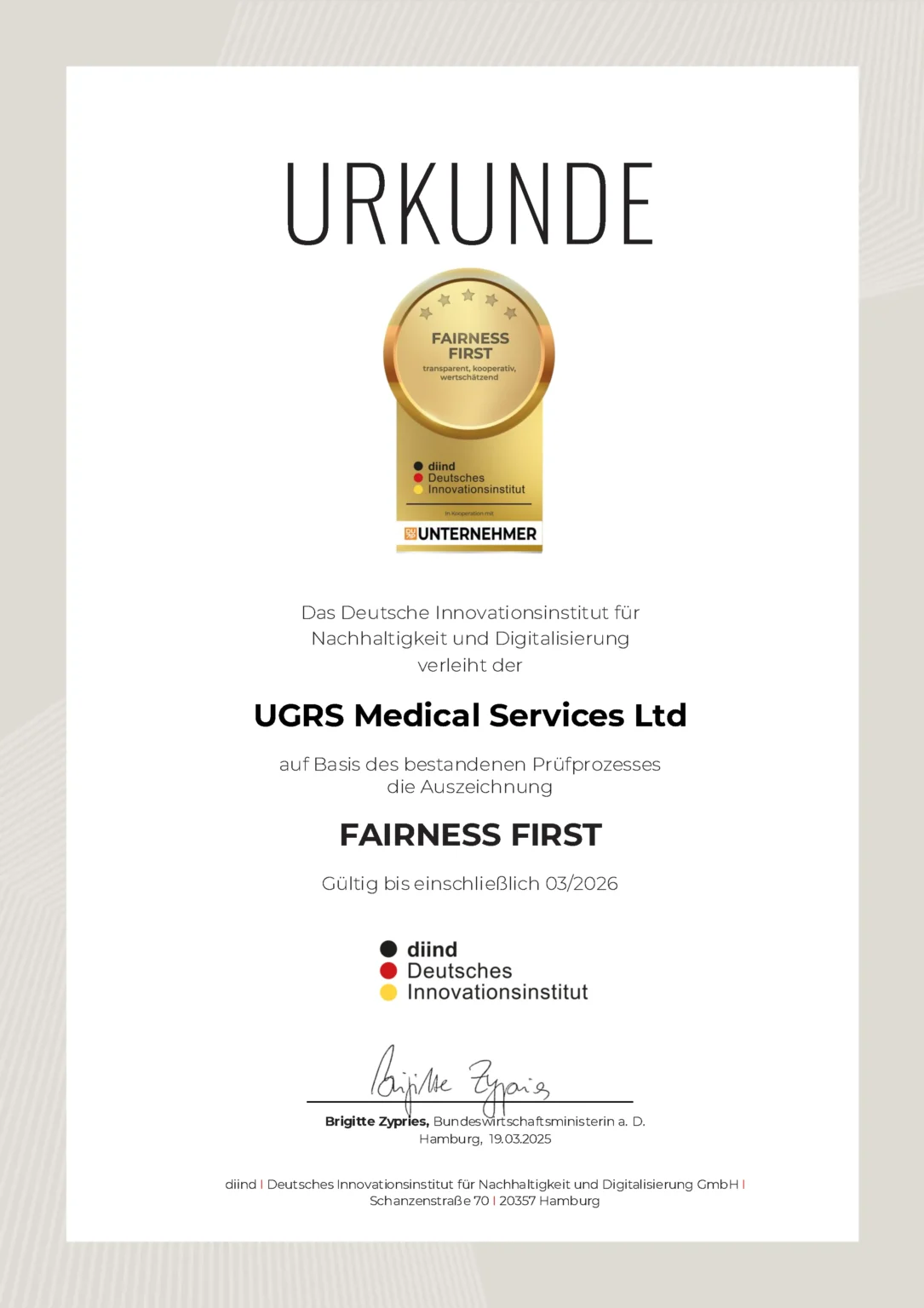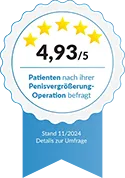Home » UGRS.Knowledge – Glossary on Penis Enlargement, Anatomy & Urology » Overactive bladder
Overactive bladder
Overactive bladder is a functional disorder of the bladder in which there is a sudden, frequent and barely controllable urge to urinate – even if the bladder is not yet full. In medical terms, this is referred to as urge syndrome or OAB(overactive bladder).
What happens with an overactive bladder?
In a healthy bladder, the body normally only signals that you need to go to the toilet when it is sufficiently full. With an overactive bladder, this mechanism is disrupted:
- The urge to urinate occurs suddenly and frequently
- The urge to urinate is difficult to suppress
- In many cases, there is involuntary loss of urine (urge incontinence)
Possible symptoms
- Frequent urge to urinate: more than eight times a day
- Nocturnal urination(nocturia)
- Sudden, strong urge - often without warning
- Possible involuntary urination(incontinence)
Possible causes (not always clear)
The exact cause is often not clearly recognizable. In many cases, there is no underlying physical illness. Possible triggers are
- Irritability of the bladder muscle (detrusor overactivity)
- Nervous dysfunction of the bladder function (e.g. after a stroke, with multiple sclerosis, Parkinson's disease)
- Hormonal changes, e.g. during the menopause
- Cystitis (temporary)
- Stress or psychological strain
Diagnosis & differentiation
A precise clarification is important to rule out other causes (e.g. urinary tract infection, bladder tumor, prostate enlargement).
The diagnosis is made, for example, by:
- Medical history (questioning about symptom history)
- Micturition log (diary of toilet visits and urine volumes)
- Cystoscopy or ultrasound
Treatment options
The therapy depends on the severity and cause. It can include
- Bladder training (targeted retention and regular emptying)
- Pelvic floor training (to support bladder control)
- Medication such as anticholinergics or beta-3 agonists that calm the bladder muscles
- Physiotherapy or electrostimulation
- In severe cases: Botox injections into the bladder wall or surgery
Everyday life and handling
- Incontinence aids (e.g. pads, pads) offer security
- Don't limit your fluid intake excessively - it's better to plan specifically
- Caffeine, alcohol and hot spices can increase symptoms
- Going to the toilet regularly (e.g. every 2-3 hours) can help
This content is for general information purposes only and does not constitute medical advice, diagnosis or treatment recommendations. It is in no way a substitute for a professional examination or treatment by a licensed physician. If you have any health complaints or uncertainties, please always consult a medical professional – especially if you have any questions about intimate surgery or sexual health.








